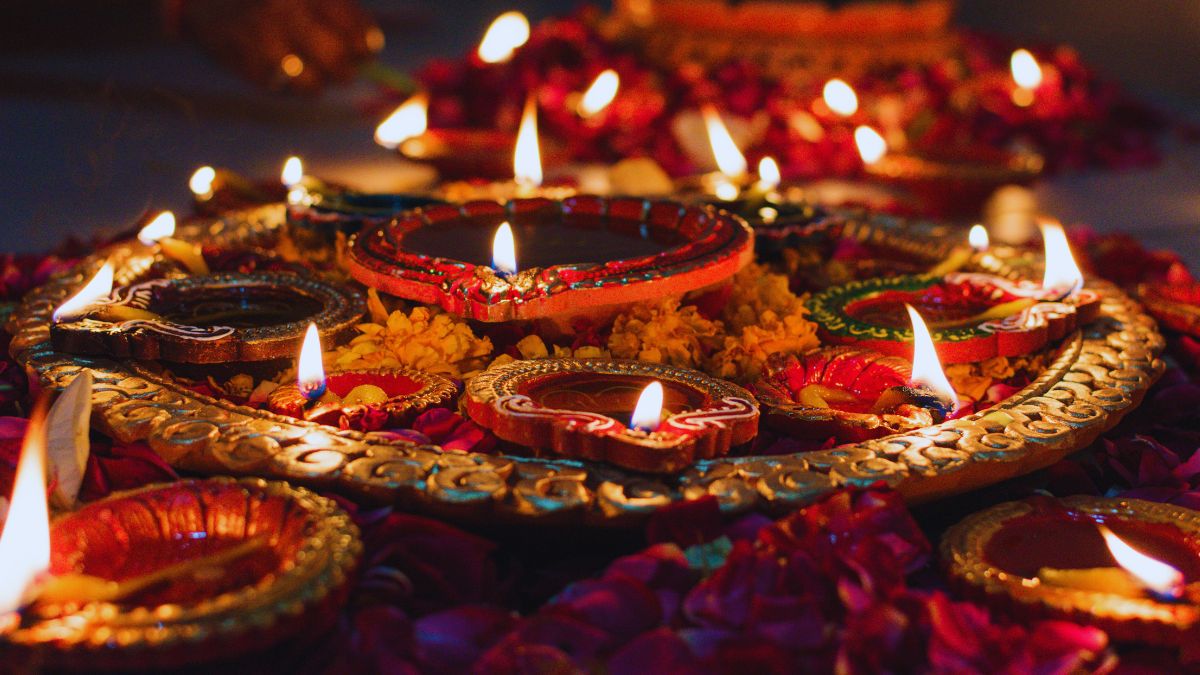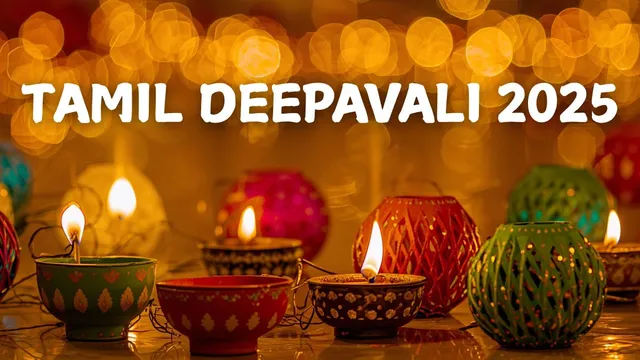- By Kashish Rai
- Mon, 20 Oct 2025 10:43 AM (IST)
- Source:JND
Tamil Deepavali 2025: Diwali's meaning differs across India. In the north, it marks Lord Rama's return to Ayodhya. In Tamil Nadu and Karnataka, it celebrates Lord Krishna and Goddess Satyabhama defeating the demon Narakasura. Depending on the Chaturdashi and Amavasya dates, the most important day of Diwali celebrations in Tamil Nadu and Karnataka may fall a day before or on the same day as in North India. The rituals performed on Chaturdashi in Tamil Nadu and Karnataka are celebrated as Naraka Chaturdashi and Abhyanga Snan in other states, where bathing with sesame oil holds special significance. This year, Tamil Deepavali falls on 20th October 2025.
Check out all the important details about the date, time, shubh muhuratam, significance and rituals for Tamil Deepavali below:
Tamil Deepavali 2025: Date And Time
- Tamil Deepavali 2025 Date: 20th October 2025, Monday
- Sathuradasi Tithi Begins: 01:51 PM, 19th October 2025
- Sathuradasi Tithi Ends: 03:44 PM, 20th October 2025
Tamil Deepavali 2025: Shubh Muhuratam
The Tamil Deepavali Shubh Muhuratam before sunrise falls between 04:29 AM to 05:41 AM.
Tamil Deepavali 2025: Significance
Diwali in South India marks the victory over the demon Naraka, a king from Assam who held thousands captive. Lord Krishna's defeat of Naraka and his release of these prisoners are commemorated during this festival. Celebrations occur on Naraka Chaturdashi in the Tamil month of Aippasi, the day before the new moon. Preparations start the day before, with cleaning the hearth and decorating it with lime and kumkum dots. Water is gathered for the coming oil bath. Homes are cleaned, decorated with rangoli, and puja rooms are readied with puja items. During Diwali, people display firecrackers and clothes marked with kumkum and sandalwood. This festival holds importance in South Indian culture.

Tamil Deepavali marks the occasion when Lord Krishna slaughtered a demon named Narakasura. (Image Source: Canva)
Tamil Deepavali 2025: Rituals
The morning of Diwali begins with great excitement and joy. First, the eldest member of the family applies sesame oil to everyone's head, then everyone goes to bathe. The youngest member of the family bathes first, then puts on new clothes and prepares to set off fireworks. These fireworks symbolise the slaying of the demon Narakasura. To make this day even more special, various dishes are prepared.
The time for lehi (a bitter concoction) is also ripe for digestion. Drinking this concoction enhances the joy of lighting fireworks. After morning prayers, family members eat murukku (sweet dishes) and idli or dosa for breakfast. Some communities believe that when the time came to kill Narakasura, he asked Lord Krishna for his last wish. Narakasura expressed his desire to celebrate this day with great pomp, and thus began the tradition of celebrating Diwali.
In the evening, lamps are lit and the fireworks begin. Tamil Nadu, being a famous place for fireworks, has no shortage of firecrackers. Newlywed couples celebrate Diwali by visiting their in-laws' homes and seeking blessings from their elders. The sound of firecrackers and colourful fireworks fills the atmosphere with joy. Diwali celebrations include temple visits, gifting clothes and jewellery, savouring sweets, and receiving blessings from elders. The groom's parents, brothers, and sisters also come to join in the festivities.
(Disclaimer: This content includes advice providing generic information only. It is in no way a substitute for qualified spiritual or astrological opinion. Always consult a specialist for more information before adopting any measures.)

